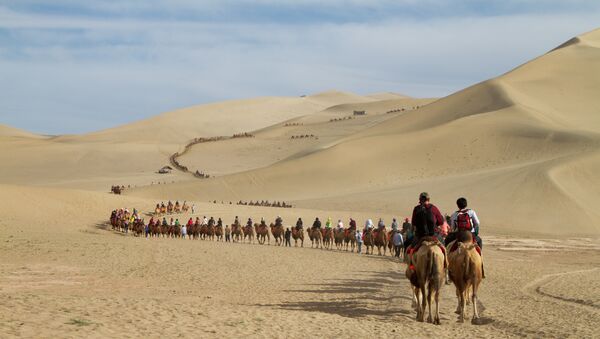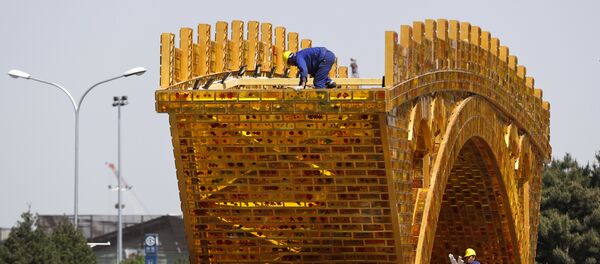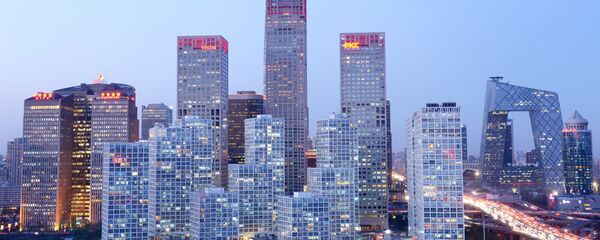China's New Silk Road Project has nothing to do with America's post-WWII Marshall Plan, China's state-run media outlet Xinhua argues.
"Why do Western commentators stuck with a Cold War mindset consider the Chinese Belt and Road initiative —the Silk Road Economic Belt and the 21st-century Maritime Silk Road — a modern version of the American Marshall Plan aimed at restoring Europe after Second World War?" the media outlet asked.
The "Western skeptics" have yet to realize that China is not a proponent of a "zero-sum game"; quite the contrary, Beijing is seeking a win-win solution, the media outlet insisted. The modern Belt and Road is aimed at creating a transnational network connecting Asia with Europe and Africa and promoting the development of countries which have embraced the initiative.
"Unlike the Marshall Plan, [China] doesn't lay down any political conditions for the participants of the Belt and Road [project]," the media outlet emphasized, "China has repeatedly said that all countries should respect each other's right to choose their own social system and development paths independently."
Furthermore, Chinese companies have already invested over $50 billion and established 56 zones of trade and economic cooperation in 20 countries along the Belt and Road; in addition, they have created a total of 180,000 jobs for the residents of these states, according to the media outlet.
In his op-ed for Sputnik, Tom McGregor, Commentator and Editor at China Network Television (CNTV), shares a similar stance.
"The [Belt and Road] initiative would benefit participating member states since China would aid sovereign governments to build logistics hubs — roads, railways, ports, bridges, and airports; manufacturing parks; energy zones with power plants and new financial centers," McGregor underscored.
The CNTV commentator admitted that China is expected to benefit the most from the project, "but deservedly so," he insisted.
"Beijing is the biggest investor in the Belt and Road, they deserve the right to determine the over-all rules, so long as other countries agree to their terms… It makes pragmatic sense for China to invest so heavily in global infrastructure projects and expect some sort of a return on investment," he wrote.
McGregor called attention to the fact that Beijing is due to host the One Belt, One Road Forum for International Cooperation on May 14-15.
"The anti-China conspiracy theorists will never change their negative views on the B&R, but other governments with more neutral positions can attend the forum and discover for themselves if the Belt and Road are the right deal for them," McGregor stressed.
The question then arises how China has managed to overcome the global economic slowdown, the weakening of international trade, and a certain setback in the process of globalization.
According to Xinhua, the answer lay just beneath the surface: instead of pursuing global dominance and adopting the policy of "zero-sum game," Beijing has embraced partnership and global cooperation.
"The Belt and Road initiative is focused on responsibility, mutually beneficial cooperation and sincere desire for joint development, it provided the world with China's response to the challenges of modernity — a balanced, fair and comprehensive model of development," the media outlet stressed.







